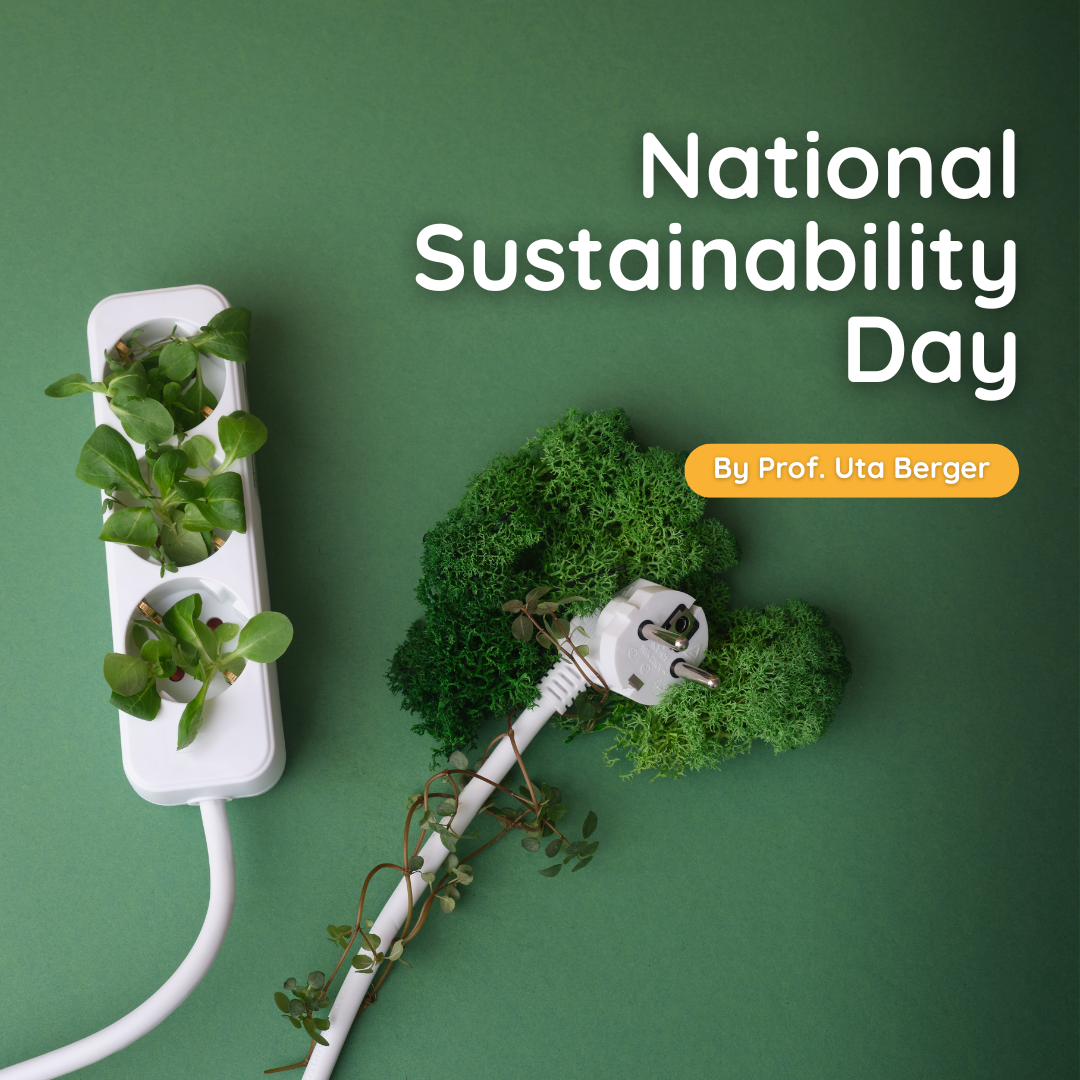National Sustainability Day by Prof. Uta Berger
This day serves as a reminder that all of Earth's resources are limited, and that we can only guarantee their sustainable use if we protect the natural regenerative capacity of ecosystems.

Although sustainability is one of the most important courses of action today, this concept is not new. Early examples of this can be found in forestry. As early as 1713, Hans Carl von Carlowitz wrote in his book Sylvatica oeconomica that forests must be managed in such a way that they are preserved in the long term. One hundred years later, in 1811, Heinrich Cotta founded one of the world's oldest forestry training centres in Tharandt, just a few kilometres from where Carlowitz worked. Today, this centre is part of the Faculty of Environmental Sciences at TU Dresden, and has trained several generations of forestry practitioners and scientists who possess the knowledge and tools necessary for using forests while preserving their functionality.
Given this expertise, is it surprising that we are still discussing the sustainable use of natural resources? Clearly, it is still difficult to reach social compromises in the face of conflicts between ecological, social and economic goals. Here, too, scientists can make important contributions. For example, they can develop simulation models to predict the effects of different management options. This allows measures to be tested and optimised before implementation, ensuring they align with the set goals. Modern monitoring systems help identify trends in the development of ecosystems at an early stage, enabling us to reinforce or counteract them. Finally, engaging with the local population is a key part of our work. This makes our work transparent and enables us to implement the results. While this can be an extremely laborious process, it is essential for ensuring that the sustainability of resource use will become sustainable.
Start date: Thursday, 25th September 2025